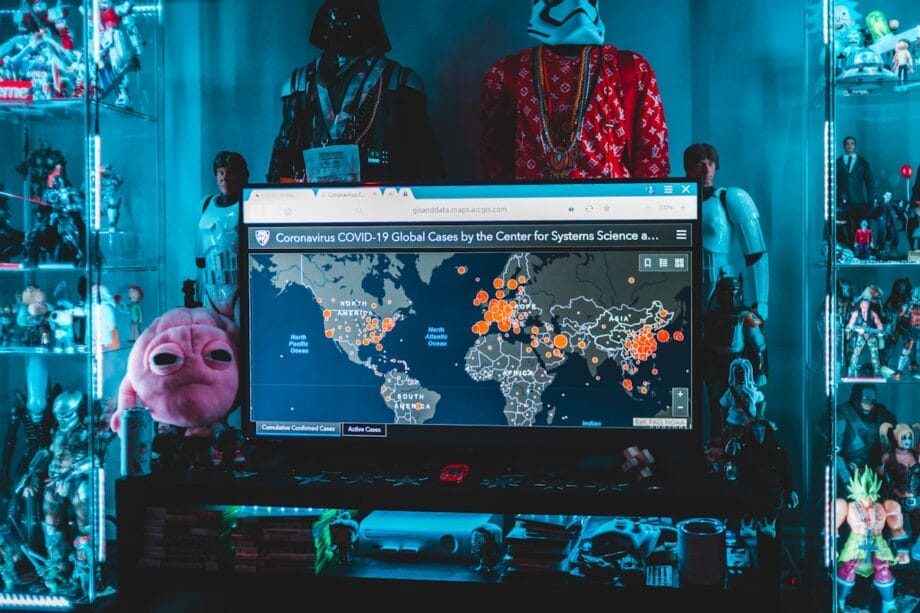Global Cybersecurity Market On the Rise
NEW YORK, Sept. 16, 2025 /PRNewswire/ — A recent comprehensive analysis from The Insight Partners reveals notable expansion within the global cybersecurity sector, driven by escalating cyber threats, stringent government mandates, and an increasing imperative to safeguard organizational assets. The Insight Partners Logo
The authoritative report encompasses a meticulous in-depth examination of market dynamics, principal players, and prospective avenues for growth. The cybersecurity landscape comprises a vast spectrum of components, categorizations, organizational scales, industry sectors, and geographical considerations, all of which are projected to attain vigor in the foreseeable future.
As a result, The Insight Partners’ report offers invaluable insights to an array of stakeholders—suppliers, distributors, consumers, and competitors—enabling them to adeptly navigate an evolving market paradigm and capitalize on emerging opportunities.
Explore Key Insights in the Cybersecurity Market Report: Obtain a sample PDF of the report here.
Overview of Report Findings
- Technological Innovations: The integration of artificial intelligence (AI) into cybersecurity frameworks has emerged as a transformative trend, set to redefine the global cybersecurity market. With the sophistication and frequency of cyber threats escalating, traditional protective measures are becoming increasingly inadequate.
AI-driven solutions are vital for enhancing threat detection, automating incident responses, and fortifying overall security frameworks.
AI adeptly processes vast datasets at remarkable speed, unveiling patterns and detecting anomalies indicative of malicious activities, often prior to the occurrence of a breach. Machine learning algorithms perpetually refine their processes by adapting to new threats, rendering AI-driven systems not only reactive but also predictive.
This capability is invaluable in countering zero-day threats, advanced persistent threats (APTs), and polymorphic malware. Consequently, leading firms are increasingly integrating AI and machine learning into their offerings to deliver sophisticated and proactive cybersecurity solutions.
For example, in June 2025, Honeywell unveiled its latest AI-centric cybersecurity solutions—Cyber Proactive Defense and OT Security Operations Center—aimed at amplifying operational resilience across industrial environments, marking a crucial shift from automation towards complete autonomy. - Surge in Cyber Threats and Attacks: Cyberattacks represent a formidable risk for enterprises, with incidents surging alongside technological advancements. Notable examples of cyber risks include malware, data breaches, and denial of service (DoS) attacks. In the first quarter of 2024, the Anti-Phishing Working Group (APWG) documented 963,994 unique phishing websites, although this number fell to 877,536 in the subsequent quarter.
Despite the decrease, phishing remains a pervasive issue. According to Interisle Consulting, global phishing incidents saw an annual uptick, climbing by 50,000 to nearly 1.9 million from May 2023 to April 2024.
Furthermore, the IBM Cost of a Data Breach Report 2024 indicated that the average expense associated with data breaches escalated to $4.88 million, a notable increase from $4.45 million in 2023, marking the most significant year-on-year rise since the advent of the pandemic.
Cyber threats precipitate severe repercussions for individuals, enterprises, and government bodies, prompting many organizations to intensify their focus on data protection. By fortifying their data protection strategies, organizations can enhance their defenses against breaches and various forms of cyberattacks, thus reinforcing the critical relevance of cybersecurity in safeguarding essential infrastructures and ensuring data integrity, thereby fueling market growth. - Geographical Insights: In 2024, North America reigned as the predominant player in the cybersecurity market, with Europe following in a secondary position, and Asia Pacific projected to showcase the highest compound annual growth rate (CAGR) during the forecast period.

Market Segmentation
- By component: The cybersecurity market is divided into solutions and services, with the solutions segment capturing the largest market share in 2024.
- By type: The segmentation encompasses network security, endpoint security, application security, and infrastructure security, among others. Notably, network security held the most significant share in 2024.
- By organization size: The market is divided into large enterprises and SMEs, with large enterprises commanding the most substantial market share in 2024.
- By industry vertical: The cybersecurity market is categorized into BFSI, IT and telecom, government, healthcare, manufacturing, retail and e-commerce, and others. The BFSI sector represented the largest share in 2024.
- The global cybersecurity market is segmented into five principal regions: North America, Europe, Asia Pacific, the Middle East and Africa, and South and Central America.
Competitive Strategy and Development
- Key Players: Noteworthy companies in the cybersecurity sector include IBM Corporation, Oracle Corporation, Open Text Corporation, SAP SE, Cisco Systems, Microsoft Corp, Broadcom Inc., Palo Alto Networks Inc, CrowdStrike Holdings Inc, and Fortinet Inc, among others.
- Trending Topics: Data Protection, Multi-factor Authentication, Identity Verification, Zero Security, among others.
Global Headlines on the Cybersecurity Market
“Broadcom Inc. announced its Accelerate Program, delivered through sole-provider distribution agreements, expanding the Broadcom Global Cybersecurity Aggregator Program to enhance service levels for a broader range of software solutions across various geographies.”
“Oracle introduced the Oracle Defense Ecosystem, a pioneering global initiative aimed at redefining the delivery of defense and government innovation, fostering national security while enabling defense innovators to harness cutting-edge cloud and AI technologies. Notable members of the Oracle Defense Ecosystem include Arqit, Blackshark.ai, Entanglement, and others.”

The ascent of cloud computing, remote workforce integration, and digital transformation initiatives has broadened the potential attack surface, heightening vulnerability to sophisticated cyber threats.
Organizations are adopting proactive cybersecurity strategies to counter these challenges, implementing frameworks like zero-trust architecture, AI-enhanced threat detection, and training programs to bolster defense mechanisms.
Moreover, evolving regulatory landscapes, such as GDPR, CCPA, and India’s Digital Personal Data Protection Act, stress the increasing importance placed on data protection, thereby compelling businesses to enforce robust cybersecurity policies.
According to the Privacy Laws and International Business Report, 83% of nations had enacted data protection legislation by 2023, a significant leap from 66% in 2020. The GDPR, enacted in 2018 by the European Union, provides a comprehensive data privacy framework to safeguard individual personal data.
Source link: Finance.yahoo.com.






